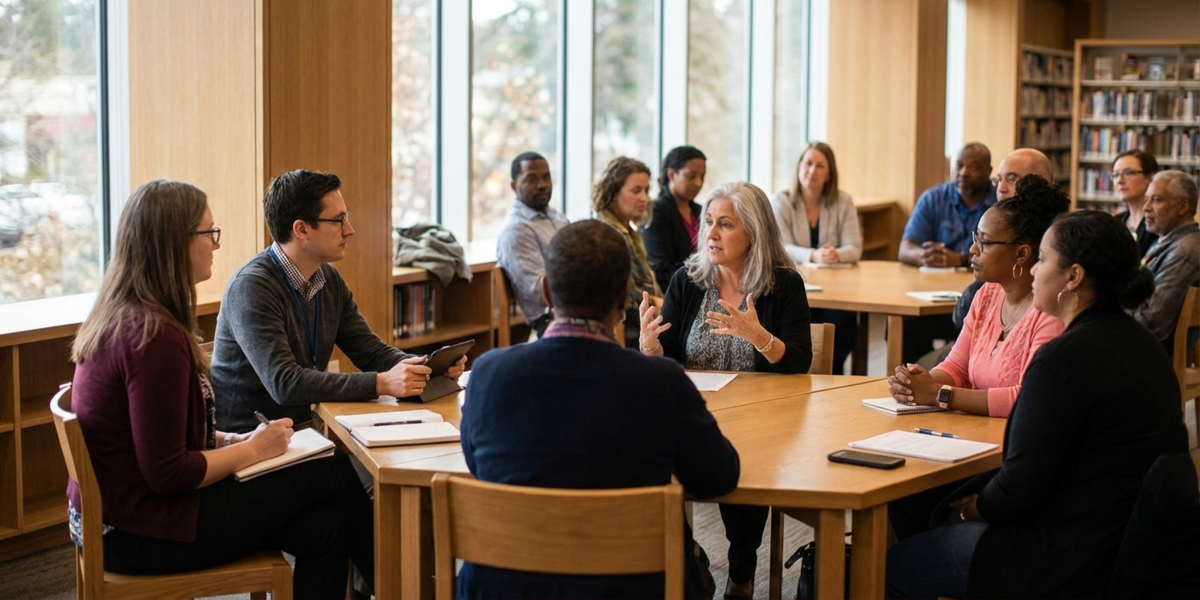Accessibility and Inclusive Design
Pioneering information technologies and solutions that are accessible and usable for people of all abilities.
Research Projects
MAITC Pilot A34 – MAITC Pilot A: Empowering Caregivers of Individuals with Cognitive Impairment to Make Safe Nonprescription Drug Decisions
Principal Investigator(s): Eun Kyoung Choe
Funder: National Institute on Aging (NIH) National Institutes of Health
Research Areas: Accessibility and Inclusive Design > Health Informatics > Human-Computer Interaction > Machine Learning, AI, Computational Linguistics, and Information Retrieval
This project introduces Aidara, an AI-powered digital health system designed to help caregivers make safer over-the-counter medication decisions for individuals with cognitive impairments. By using large language models to simplify and present drug information through multimodal formats- including text, speech, and visuals- Aidara aims to enhance understanding, reduce health risks, and improve self-guided medication management.
Principal Investigator(s): Eun Kyoung Choe
Funder: National Institute on Aging (NIH) National Institutes of Health
Research Areas: Accessibility and Inclusive Design > Health Informatics > Human-Computer Interaction > Machine Learning, AI, Computational Linguistics, and Information Retrieval
This project introduces Aidara, an AI-powered digital health system designed to help caregivers make safer over-the-counter medication decisions for individuals with cognitive impairments. By using large language models to simplify and present drug information through multimodal formats- including text, speech, and visuals- Aidara aims to enhance understanding, reduce health risks, and improve self-guided medication management.
Postdoctoral Fellowship: STEMEdIPRF: SAGE4ICE: Student Analogy Generation Empowerment for Computing Education
Principal Investigator(s):
Funder: National Science Foundation
Research Areas: Accessibility and Inclusive Design > Data Science, Analytics, and Visualization > Future of Work > Human-Computer Interaction > Youth Experience, Learning, and Digital Practices
This project develops classroom activities, digital scaffolding tools, and an online library to guide students in creating effective analogies for learning computing concepts. By improving comprehension and persistence in introductory courses, the project aims to broaden participation and strengthen the pipeline of future computing professionals.
Principal Investigator(s):
Funder: National Science Foundation
Research Areas: Accessibility and Inclusive Design > Data Science, Analytics, and Visualization > Future of Work > Human-Computer Interaction > Youth Experience, Learning, and Digital Practices
This project develops classroom activities, digital scaffolding tools, and an online library to guide students in creating effective analogies for learning computing concepts. By improving comprehension and persistence in introductory courses, the project aims to broaden participation and strengthen the pipeline of future computing professionals.
P3 (Pregnancy and Postpartum/Preconception) EQUATE (Enhancing Access and Quality to Achieve Equitable Maternal and Infant Health) Network
Principal Investigator(s): Jasmine Garland McKinney
Funder: American Heart Association Other Non-Federal
Research Areas: Accessibility and Inclusive Design > Data Science, Analytics, and Visualization > Health Informatics > Information Justice, Human Rights, and Technology Ethics
This project validates the Prepartum Form for Evaluating Race-Related Psychological Stressors (PP-FERRPS)©, a screening tool designed to measure how race-related stressors affect Black perinatal women’s mental health. By refining this tool, the study aims to address gaps in traditional assessments and improve clinical support in maternal care.
Principal Investigator(s): Jasmine Garland McKinney
Funder: American Heart Association Other Non-Federal
Research Areas: Accessibility and Inclusive Design > Data Science, Analytics, and Visualization > Health Informatics > Information Justice, Human Rights, and Technology Ethics
This project validates the Prepartum Form for Evaluating Race-Related Psychological Stressors (PP-FERRPS)©, a screening tool designed to measure how race-related stressors affect Black perinatal women’s mental health. By refining this tool, the study aims to address gaps in traditional assessments and improve clinical support in maternal care.
Faculty
Staff
Recent News

This image was generated using AI (Google Gemini)
News Release: New Field Guide Available for Libraries to Prepare to Serve Their Communities During Crises
Offering libraries a powerful framework for proactive, community-centered crisis preparedness
Photo licensed by Adobe Stock via Ashi
Emerging Voices: INFO’s Doctoral Scholars Shape the Future of LIS Education
Four PhD students are part of the 2025 cohort of ALISE Emerging Scholars
Kaush Ganesh, HCIM '20












































